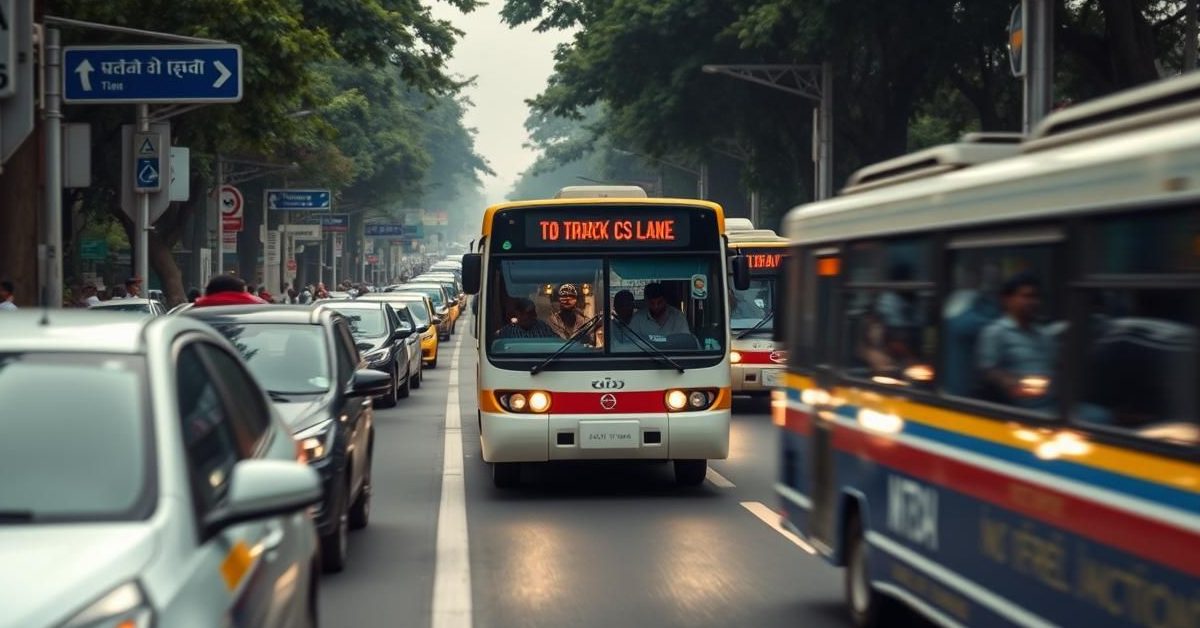Indian cities are grappling with complex urban transport challenges, leading to a proposal for a specialized All India Service Cadre to manage urban mobility effectively.
The “Orphan” Status of Urban Transport
Urban transport in India is often described as an “institutional and constitutional orphan.” It doesn’t have an explicit mention in any of the three constitutional lists: Union, State, or Concurrent.
While urban planning falls under state purview and highways/railways under the Union, urban transport bridges both. In 1986, the subject was officially moved to the Ministry of Urban Development, now known as the Ministry of Housing and Urban Affairs (MoHUA).
The MoHUA appointed an Officer on Special Duty (OSD) for Mass Rapid Transit Systems, typically experienced railway engineers, to oversee metro projects. This role evolved to OSD (Urban Transport), crucial for shaping policies like the National Urban Transport Policy (2006) and the Metro Policy (2017).
Why a Unified Approach is Needed
Despite these efforts, Indian cities still face significant governance issues in urban transport. Responsibilities are fragmented across various entities, including municipal corporations, metro rail corporations, State Transport Undertakings (STUs), and Regional Transport Offices (RTOs).
Each of these agencies often operates independently, lacking a shared vision or coordinated strategy. This siloed approach means there’s no dedicated, unified administrative body to develop long-term plans, ensure continuity in policies, or foster seamless collaboration among stakeholders.
Professionals with expertise in urban transport are dispersed, contributing to the idea that a specialized All India Urban Transport Service is necessary to fill this crucial gap.
Unified Metropolitan Transport Authorities (UMTAs) and Their Challenges
The concept of Unified Metropolitan Transport Authorities (UMTAs) has been recommended for years, aiming to create nodal agencies for coordinated transport governance. Cities like Delhi are actively working on establishing UMTAs, and several other states, including Tamil Nadu and Karnataka, have introduced legislation for them.
However, UMTAs in many cities have faced various hurdles. These include legal ambiguities, a lack of effective inter-agency coordination mechanisms, unclear jurisdictional boundaries, and resistance from existing institutions protecting their turf.
Globally, cities like London (with Transport for London – TfL), Vancouver, Singapore, and Paris offer examples of unified transport governance where lead institutions are equipped with dedicated professionals to manage complex urban mobility systems.
Can a Dedicated Cadre Help?
The idea of a specialized cadre isn’t new; the High-Level Committee on Urban Planning Report (2023) suggested an All India Urban and Regional Planning Service. The rationale is to establish a permanent, professional presence in cities with the expertise to tackle intricate urban challenges.
Currently, municipal commissioners often handle these responsibilities, but their tenures are limited, and they are generalists rather than specialists. A dedicated urban transport cadre could provide consistent expertise in policy, planning, regulation, and operations at the city and metropolitan levels.
These officers could support city governments, aid in establishing UMTAs, and improve coordination among various agencies. Training and administrative support could be drawn from existing government structures.
- Indian urban transport lacks clear constitutional backing, leading to fragmented management.
- Multiple agencies operate in silos, hindering integrated planning and long-term strategy.
- Unified Metropolitan Transport Authorities (UMTAs) face challenges like legal ambiguities and turf protection.
- A dedicated All India Urban Transport Service could provide specialized expertise and continuity.
While an All India Urban Transport Service is not a magic solution, it represents a crucial first step. It would address the long-standing issues of capacity and professional expertise in urban transport planning at the city and metropolitan levels, ensuring more responsive and adaptable urban mobility solutions.















